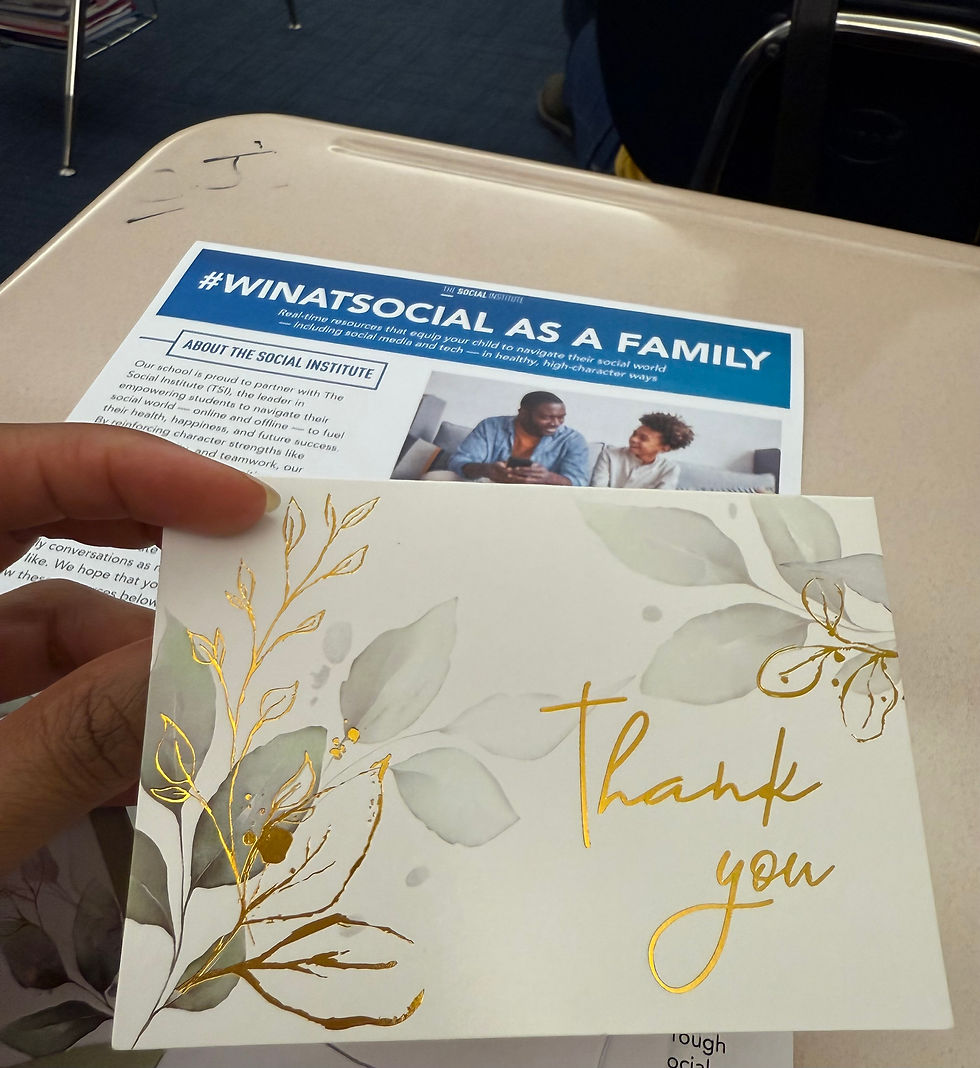Do We Value What We DON'T Pay For? The Hidden Price of Parent Involvement in Education
- tbrown270
- Sep 20
- 3 min read

Think about the difference between a $1,000 pair of designer sneakers and a $10 pair from the thrift store. Chances are, you’d take extra care with the designer shoes—storing them properly, keeping them clean, maybe even limiting when you wear them. The thrift store pair? You’d toss them around, wear them out, and probably never think twice.
That same mentality, I dare to say, has crept into how we view education. The more expensive the education, the more value we place on it. From early childcare through college, society tends to measure worth by cost. A private university degree is held in higher esteem than a community college degree. Private school students are perceived to receive a “better” education than those in public or charter schools.
And the impact is undeniable.
Recently, I attended my son’s 4th-grade back-to-school night at his private school—a place where tuition is high and admissions are competitive. When I walked into the classroom, every student’s desk had a name card, and every seat was filled by a parent or guardian. Some families came with both parents, creating a standing-room-only crowd. The teacher laid out classroom expectations, reviewed the curriculum, and facilitated an activity where our children had written us “thank you” notes and we responded in kind.
Looking around, I felt proud to see such strong parental presence. But that pride was quickly followed by sadness. Because in the inner-city childcare programs I lead, back-to-school nights often look very different. Rows of empty chairs. Missing voices. Low parent participation.
This isn’t to say families in lower-income communities don’t care. They face unique challenges; work schedules, transportation, financial strain—that make involvement more difficult. But still, the contrast was stark. It made me wonder: if families had to pay directly and significantly for early childhood education, would involvement look different? Would teachers carry themselves with more professionalism if they were working in a high-cost, high-demand setting? Would families show up more if they saw their tuition bill as a reflection of the “value” of the education?
Let’s be honest. It is no coincidence that “better schools” are found in “better areas.” We’ve quietly accepted this as fact, as if it’s a natural law. But just because that’s the way it is doesn’t mean it’s the way it should be. Every child, no matter their zip code, deserves access to a high-quality education, and every parent should feel empowered to be involved, regardless of whether their school is free, publicly funded, or private.
The truth is that education is too often treated like the thrift-store sneakers when it’s free or publicly funded. And when parents don’t show up, when school board meetings in inner cities are empty, when calls to local politicians are silent, the message is that the community doesn’t care. Meanwhile, in affluent areas where families are either paying higher taxes or writing checks directly to schools, politicians and leaders can’t ignore the noise. Meetings are packed, phone lines are buzzing, and change happens.
Yes, the struggles in under-resourced communities are real. But education has to rise to the top of the priority list. Because knowledge is power and often, the only opportunity families have to break cycles of poverty and shift tax brackets.
If we want lawmakers to care, if we want systems to change, inner-city families must show up, speak out, and demand better! The price of education should not determine the value we place on it. Our children’s futures are too important to be treated like a $10 pair of sneakers.




Comments